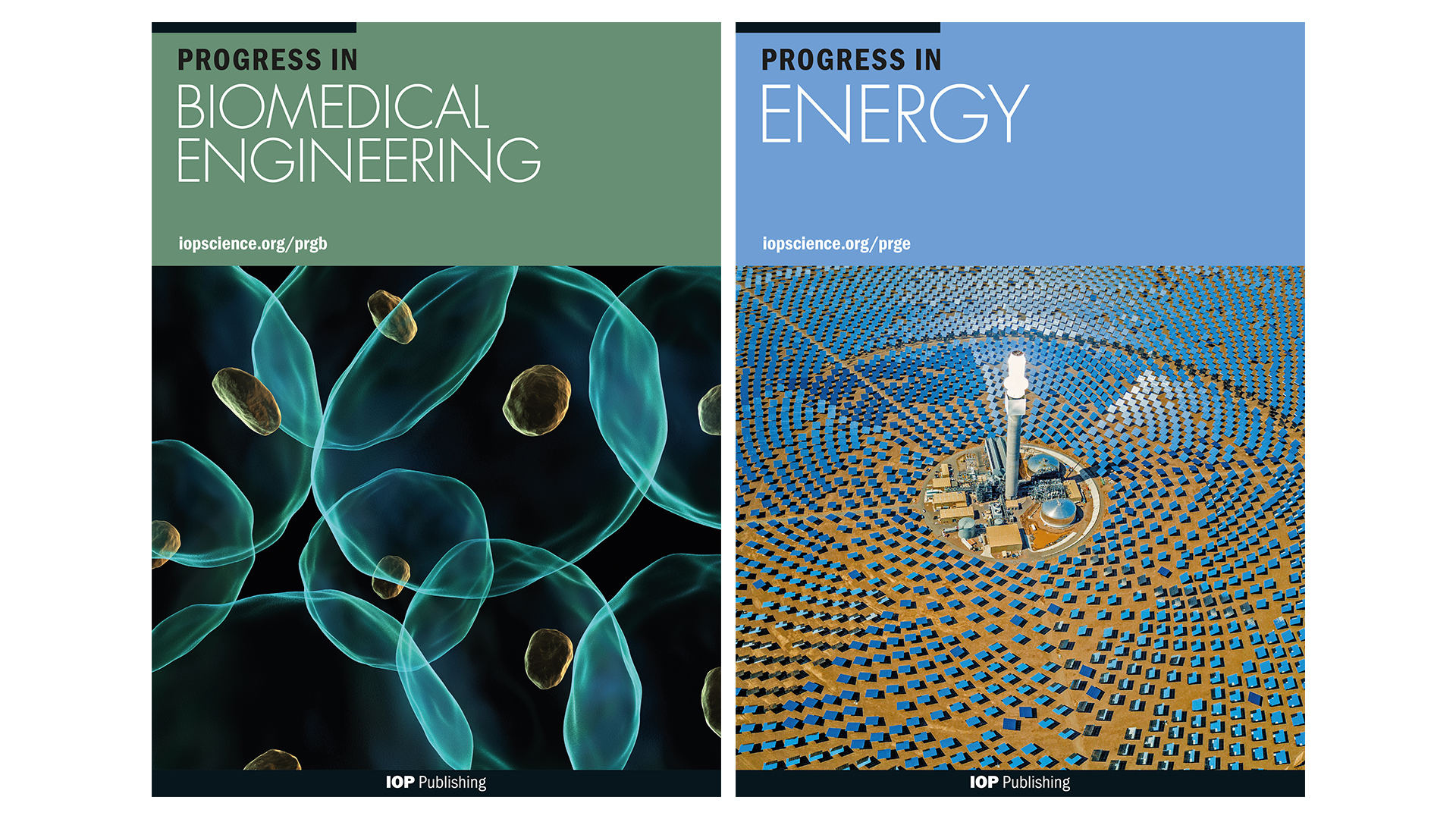The first content has been published in two IOP Publishing’s journals portfolio – Progress in Energy (PRGE) and Progress in Biomedical Engineering (PRGB).
The two journals were launched to cater for the needs of specific research communities, providing a platform for knowledge sharing and offering researchers the opportunity to collaborate and shape the future direction of research in their fields
PRGE aims to address the wide-ranging and important issues facing the world’s energy transition system. Editor-in-Chief Nigel Brandon, of Imperial College London, said: “Energy is a vast and critically important topic, covering a range of long-established energy carriers such as electricity, natural gas, and oil, along with emerging low carbon options such as hydrogen and ammonia.
“Transitioning to a low carbon and sustainable energy system is one of the greatest challenges of our time, requiring scientific, technological, commercial and social innovation and change. PRGE will focus on all the topics – scientific, technical, economic, social, and political – that must be addressed as we consider how to meet the world’s growing demand for energy, while ensuring we mitigate any associated environmental and social concerns.”
The three articles in PRGE’s first issue reflect the range of topics the Journal will address. Martin Green for the University of New South Wales, Australia, provides his perspective on the status of solar photovoltaics (PV), a set of technologies that have seen rapid evolution in recent years.
Marilyn Brown from the Georgia Institute of Technology, USA, leads a focus on aspects of cost of access to energy in the USA for low income households, and this at a time of abundant energy supplies, a topic also known as fuel or energy poverty.
Meanwhile, editorial board member Morgan Bazilian from the Colorado School of Mines, USA, examines the low carbon strategies and investments made by national and international oil companies, and what role they will play to ensure a successful transition to a low-carbon world.
PRGB features reviews and opinion pieces in the most significant and interesting areas of biomedical engineering research.
Editor-in-Chief Metin Sitti, of the Max Planck Institute for Intelligent Systems, said: “Biomedical engineering has always had a highly positive impact in improving the quality of our lives. Emerging scientific, technological and commercial innovation in biomedical engineering will help us to overcome the many challenges we face.
“PRGB will help critically analyse progress, report on and discuss the current scientific and engineering challenges, propose approaches to tackle such challenges, and provide a future perspective and vision.”
In PRGB’s first issue, there are two review and one perspective articles. In the perspective article, David Williams from Wake Forest Institute of Regenerative Medicine examines the biocompatibility of materials used in implantable devices.
In the first review article, Ali Khademhosseini’s group at UCLA from the University of California, Los Angeles presents and discusses the emergence of bioprinting in organ-on-chip systems.
The second review article, from the Max Planck Institute for Intelligent Systems, looks at translational prospects of untethered medical microrobots, which could have the potential to transform medicine radically.
